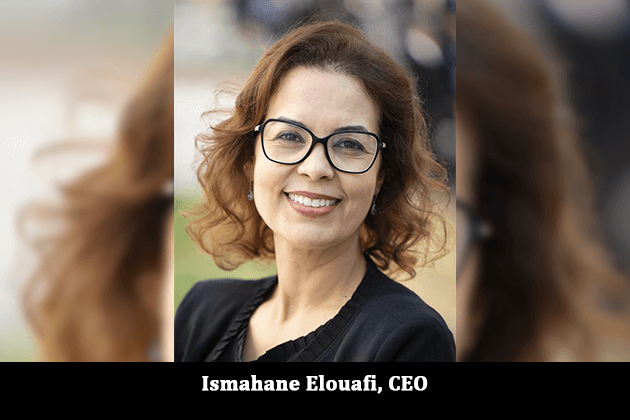During the 1960s and early 1970s, developing countries were grappling with the pressing crisis of hunger and poverty, exacerbated by rapid population growth and low agricultural productivity. A visionary coalition of governments, philanthropies, and international organizations came together to create a model that would transform agricultural research—CGIAR.
CGIAR was born out of a shared commitment to ensuring food security for all. Driven by the belief that science and research could revolutionize agriculture, the global partnership has been cultivating a sustainable future since 1971.
A Vision Turned into Reality
In response to the need for transformative solutions, the concept of a global research network took shape. Spearheaded by initiatives from the Rockefeller Foundation and the Ford Foundation, which had already achieved significant success with the Green Revolution, CGIAR’s founding vision was to address food, land, and water systems challenges. The network focused on improving agricultural productivity and sustainability, improving livelihoods, and tackling global challenges.
In 1971, the Consultative Group on International Agricultural Research (CGIAR) was officially established as a unique partnership of governments, donors, and international organizations to fund and guide independent research centers globally. This decentralized network has become a core driver of innovation, advancing improved crop varieties, sustainable farming practices, and policies tailored to regional needs.
CGIAR’s Evolving Mission
Today, CGIAR’s mission continues to evolve in response to the world’s growing challenges, particularly in the context of climate change, environmental degradation, and social inequalities. Its 2025-30 Research and Innovation Portfolio represents a bold, new phase for CGIAR, focusing on food, land, and water systems transformation. This strategic approach aims to address the interconnected challenges of hunger, poverty, malnutrition, and biodiversity loss through science and innovation, while leveraging CGIAR’s comparative advantage across its network of 13 research centers.
CGIAR’s new portfolio highlights its commitment to providing transformative solutions by using science to equip small-scale farmers with the tools and knowledge needed to produce more food sustainably, adapt to climate challenges, and protect natural resources.
“The 2025-30 Research and Innovation Portfolio reflects CGIAR’s commitment to addressing the world’s most pressing challenges,” says Dr. Ismahane Elouafi, Executive Managing Director. “Our focus is on driving innovation that will make agriculture more resilient and sustainable, empower farmers, and tackle the interlinked crises of food insecurity, poverty, and climate change. By connecting research, technology, and inclusive partnerships, we are paving the way for a more sustainable and equitable future for food systems worldwide.”
Going Beyond Research
CGIAR’s global network of research centers is contributing to a sustainable future by focusing on five key impact areas: Nutrition, Poverty Reduction, Gender Equality, Climate Adaptation, and Environmental Health and Biodiversity. These impact areas are informed by a thorough analysis of partner needs and emerging global trends, ensuring a localized yet global approach.
CGIAR’s work addresses the increasing demand for innovative solutions across the world, collaborating with over 100 countries to advance climate-smart solutions, enhance livelihoods, and promote sustainability. More than 2.1 million people have improved their access to nutritious food, while 22.4 million people benefit from CGIAR climatesmart innovations. With a focus on equity, CGIAR also supports over 16 million people in its gender equality and social inclusion efforts.
CGIAR Innovations
CGIAR innovations have made a profound impact across multiple areas. In nutrition, biofortified crops like orange-fleshed sweet potatoes and finger millet are combating nutrient deficiencies, improving the health of millions. In the realm of poverty reduction, the network is enhancing the livelihoods of smallholder farmers by promoting sustainable farming practices and providing access to finance, lifting millions out of poverty.
Gender equality efforts are also a key focus, with gender-transformative approaches in aquaculture, fisheries, agriculture, and broader development sectors addressing the root causes of gender inequalities and driving progress toward more inclusive, resilient food systems.
CGIAR’s climate adaptation initiatives have led to the development of climate-smart crops resistant to drought, flooding, pests, and diseases, ensuring food security in the face of a changing climate.
Additionally, innovations in sustainable fertilizer education and the reintroduction of underutilized crops are helping to restore biodiversity and improve ecosystem health, contributing to a more sustainable agricultural landscape.
New Innovations for a Changing World
The 2025-30 Research and Innovation Portfolio builds on the legacy of CGIAR’s previous work while embracing new challenges and opportunities. With a focus on closing production gaps and accelerating South-South learning, CGIAR is harnessing emerging technologies like AI, Big Data, and digital tools to drive progress. The use of predictive analytics, precision farming, and genomic research is allowing CGIAR to develop resilient, climate-adapted crops and provide actionable insights for farmers and policymakers. CGIAR’s dedication to digital inclusion and climate resilience is evident in its programs such as the Digital Climate Advisory Services and the South Asia Drought Monitoring System, which are helping farmers manage climate variability and improve agricultural productivity.
Shaping the Future of Food Systems
CGIAR’s Portfolio will play a critical role in meeting the world’s high expectations for transformative solutions, with a focus on tackling climate change, reducing inequalities, and promoting sustainable food systems. Through its nine programs and three accelerators, CGIAR is setting ambitious targets to achieve food and nutrition security in a rapidly changing world.
By leveraging its vast network and resources, CGIAR aims to accelerate the transition to sustainable, climate-resilient agri-food systems. As the world’s largest publicly funded agrifoods-focused research network, CGIAR is well-positioned to lead the charge in shaping a future where food, water, and land systems are secure for all.
Addressing Future Trends
In 2023, the Independent Science for Development Council (ISDC) conducted a study to assess emerging global trends such as demographic shifts, changing consumer behaviors, and the escalating impacts of climate change, and how they will influence CGIAR’s strategies. The findings have shaped CGIAR’s 2025-2030 Portfolio and focuses on adapting to these trends. This future-focused approach includes advancing CGIAR’s nine programs and three accelerators, alongside the use of its gene bank and cutting-edge knowledge assets, to drive sustainable solutions and meet evolving global needs.
Words for Future Innovators
Dr. Ismahane Elouafi advises future innovators and entrepreneurs to embrace systems thinking, focusing on solutions that address interconnected challenges. She further suggests staying agile in adapting to global shifts and prioritizing sustainability. “By championing inclusivity and sustainability, innovators can achieve excellence while driving meaningful, long-lasting impact,” adds Elouafi.
By fostering partnerships with governments, the private sector, and multilateral institutions, CGIAR aims to co-create impactful innovations.”










